
”My name is Meghyn Fountain, and I’m a research intern working on Stony Coral Tissue Loss Disease (SCTLD), or what we call ‘Coral COVID.’ I chose to do an internship with PIMS because I remember coming across an Instagram post they made about Stony Coral Tissue Loss Disease, and I learnt a bit about the disease during my previous internship with Coral Vita. I thought it would’ve been a good idea to learn more about it and become more trained in the area because it’s such a devastating disease; so, here I am!
My main project involves mapping out both healthy and diseased corals at different time points in time to monitor how fast the diseases moves, and how quickly corals are dying. Using a geographical information system (GIS), I would outline the healthy tissue on the coral creating a polygon, then at different timepoints, if that coral becomes infected with SCTLD I would then alter that polygon, showing the area of that coral tissue that has died and the area that is still living. My supervisor, Dr. Valeria Pizarro, also trained me in techniques to treat SCTLD.
Taken together, I have learned so much during this internship. My first order of business was to master coral species identification while SCUBA diving, so that I could later identify species in the GIS program. I learned individual species codes, based on the Atlantic Gulf and Rapid Reef Assessment (AGRRA) methods for surveying coral reef health. I also learned a lot about diving. I came into this internship with my Advanced Open Water certification; however, my diving skills were definitely fine-tuned throughout this time.
Without a doubt, my work is crucial because coral reefs are essential to ocean biodiversity. It’s believed that coral reefs are more biodiverse than any ecosystem found on land and water, and they are home to about one quarter of all marine life. Working on this project is important because this disease is killing corals at an alarming rate and because scientists don’t exactly know what causes it as yet. In other words, we’re in a race against time.
.jpg)
This internship has helped with my career path because it has shown me that I love working with corals. I can admit that I never thought about it in my younger years but I truly would love to now. Also, I love meeting and working with so many accomplished scientists because they give great advice when it comes to furthering your career with a Master’s or PhD.
If I could give all Bahamians one message about marine conservation, it would be that it only takes one helpful action. Whether it’s picking some garbage on the beach, using a reusable cup/straw, practicing responsible boating or even supporting organizations that work to save and protect the ocean, your one choice could inspire another to help or it could inspire you to take more sustainable actions. Also, as Bahamians, the ocean’s health affects us ALL and I think it should be in everyone’s interest to educate themselves on what’s happening.
To apply for an internship with the us in 2021 or 2022, click here!
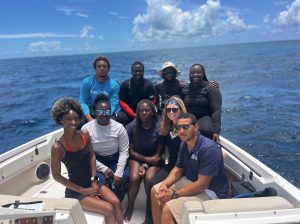
Become a PADI Dive Instructor in The Bahamas | Conservation-Focused IDC
Become a PADI Dive Instructor in The Bahamas | Conservation-Focused IDC | Perry Institute for Marine Science Education & Training Ready to take your diving skills to the next level
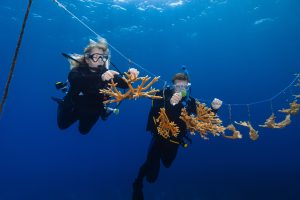
Stream2Sea Coral Care: The World’s First Reef-Positive Sunscreen
Stream2Sea Coral Care: The World’s First Reef-Positive Sunscreen | Perry Institute for Marine Science Conservation Partners Stream2Sea Coral Care: The World’s First Reef-Positive Sunscreen Discover why PIMS has partnered with

Build a Coral Reef for the Holidays | PIMS x Partanna
PIMS is partnering with Partanna to build a 100m² carbon-negative reef. Rick Fox is matching donations up to $25k. Help us build a sanctuary for the future.
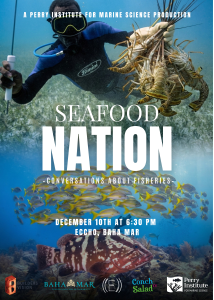
“Seafood Nation” Documentary Premiere Explores the Heart of Bahamian Culture and the Future of Fisheries
NASSAU, The Bahamas | December 5, 2025 – From the bustling stalls of Potter’s Cay to family kitchen tables across the archipelago, seafood is far more than just sustenance in
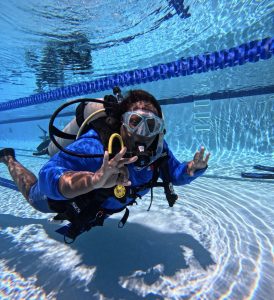
PIMS and Disney Conservation Fund Partner to Train 19 Government Divers
PIMS dive training in Nassau strengthened national coral restoration capacity across government agencies. Bahamas Dive Training Builds National Coral Restoration Capacity Last fall, between the months of September and October,
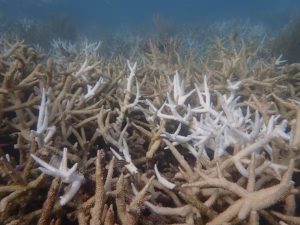
Florida’s Coral Reef Crossed a Line: What Functional Extinction Really Means for Elkhorn and Staghorn Corals
Reefs didn’t just bleach. They functionally vanished in one summer. A new Science study co-authored by researchers from the Perry Institute for Marine Science (PIMS) has found that Florida’s two


